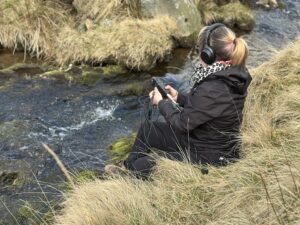World Social Media Day: Yes, Parents, it’s a thing

June 30th is an important day for parents worldwide, marking World Social Media Day. Yes, parents, it’s a thing! In this digital age, where social media has become an integral part of our lives, parents must embrace and understand the world their children are growing up in. World Social Media Day is an opportunity for parents to take a moment to reflect on their parenting approach in the era of online communication.
Social media platforms have transformed how we connect, communicate, and share information. They have become an intrinsic part of our daily lives and offer immense opportunities for learning, creativity, and connection. However, as parents, navigating the digital world responsibly and guiding our children to make safe and informed choices online is essential.
Eduardo Omeltech. a specialist in neuroscience and behaviorism, brings awareness to the increasing prevalence of toxicity on social media platforms, raising concerns about the well-being and safety of online communities. The rise of online harassment, hate speech, and bullying has significantly impacted mental health, with individuals and organizations calling for immediate action to combat this issue. In response to these alarming findings, experts emphasize the importance of creating positive online spaces and promoting digital well-being.
Online communities have become central to connecting, sharing information, and expressing themselves. However, social media platforms’ lack of moderation and accountability has allowed toxic behavior to flourish. “The consequences of this toxicity are vast and can result in severe emotional distress, anxiety, and even self-harm for the victims. Steps must be taken to promote a safe and inclusive online environment for all users,” commented Eduardo.
Digital well-being initiatives are essential in addressing the toxic culture prevalent on social media. Encouraging platforms to prioritize user safety and mental health should be a collective effort. Tech companies, social media platforms, and policymakers must collaborate to develop and implement effective solutions to combat online harassment. This involves improving reporting and blocking mechanisms, investing in moderation tools, and educating users about responsible online behavior.
It is also crucial for individuals to take an active role in fostering positive online spaces. Simple acts of kindness, empathy, and respect can go a long way in counteracting the toxic behavior often encountered on social media. By promoting a culture of civility and understanding, online communities can become beacons of positivity and support.
“The need to combat toxicity on social media is not limited to personal well-being but has broader societal implications. Online platforms significantly influence public discourse, shaping public opinion and impacting real-world outcomes. We can foster healthier discussions, bridge divides, and promote a more inclusive and tolerant society by tackling toxicity online,” commented Eduardo.
Talking about parents, if you are or not, it is important to establish open lines of communication with the children around you about social media. We should have honest conversations about responsible behavior, being mindful of our digital footprint, and treating others with kindness and respect. By creating a safe and non-judgmental environment, we can encourage our children to share their experiences, concerns, and questions about social media.
On World Social Media Day, let’s celebrate the power of social media while acknowledging our role as parents in guiding our children’s online experiences. By actively engaging in their digital lives and embracing the digital age, we can help them navigate social media with confidence, maturity, and a sense of responsibility, even before getting an adult.
Talking about our beloved children, here are some things we can avoid for now:
It’s alarming that children who use electronic devices at bedtime are twice as likely to suffer from sleep disorders, poor sleep, anxiety, and depression. These devices are negatively impacting their well-being and cognitive development.
To ensure our children thrive, we must take action. We can make a significant difference in their lives by setting a strict limit of two hours per day for screen time, prioritizing physical activity, and promoting quality sleep. It’s disheartening that only a small percentage of children follow these crucial recommendations.
Let’s prioritize our children’s sleep and overall health by establishing clear boundaries on screen time, especially before bedtime. Encouraging healthy habits and a balanced lifestyle can empower our children to grow cognitively and enjoy healthier lives. Together, we can make a lasting impact on their well-being.
In conclusion, the prevalence of toxicity on social media platforms calls for immediate action to create positive online spaces. Whether through stronger moderation tools, digital well-being initiatives, or promoting responsible online behavior, our collective responsibility is to combat the toxic environment online. Together, we can build a safer and more inclusive online community for everyone to enjoy.




